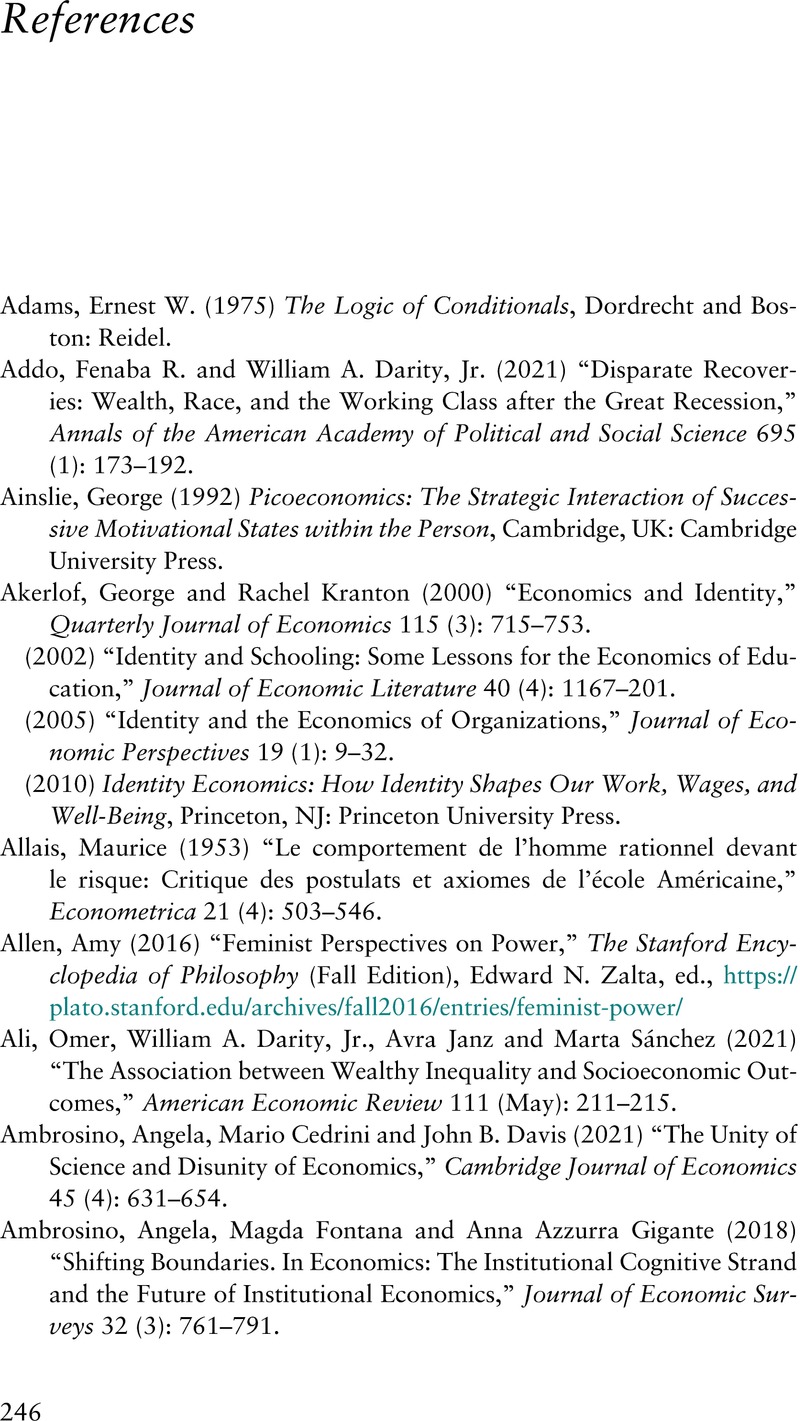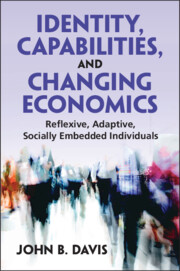Book contents
- Identity, Capabilities, and Changing Economics
- Identity, Capabilities, and Changing Economics
- Copyright page
- Dedication
- Contents
- Tables
- Boxes
- Preface
- Acknowledgments
- Part I The Failed Pathway and Exit Strategies
- Part II Building a Socially Embedded Individual Conception
- Part III Value and Subjectivity
- References
- Index
- References
References
Published online by Cambridge University Press: 11 January 2024
- Identity, Capabilities, and Changing Economics
- Identity, Capabilities, and Changing Economics
- Copyright page
- Dedication
- Contents
- Tables
- Boxes
- Preface
- Acknowledgments
- Part I The Failed Pathway and Exit Strategies
- Part II Building a Socially Embedded Individual Conception
- Part III Value and Subjectivity
- References
- Index
- References
Summary

- Type
- Chapter
- Information
- Identity, Capabilities, and Changing EconomicsReflexive, Adaptive, Socially Embedded Individuals, pp. 246 - 278Publisher: Cambridge University PressPrint publication year: 2024



